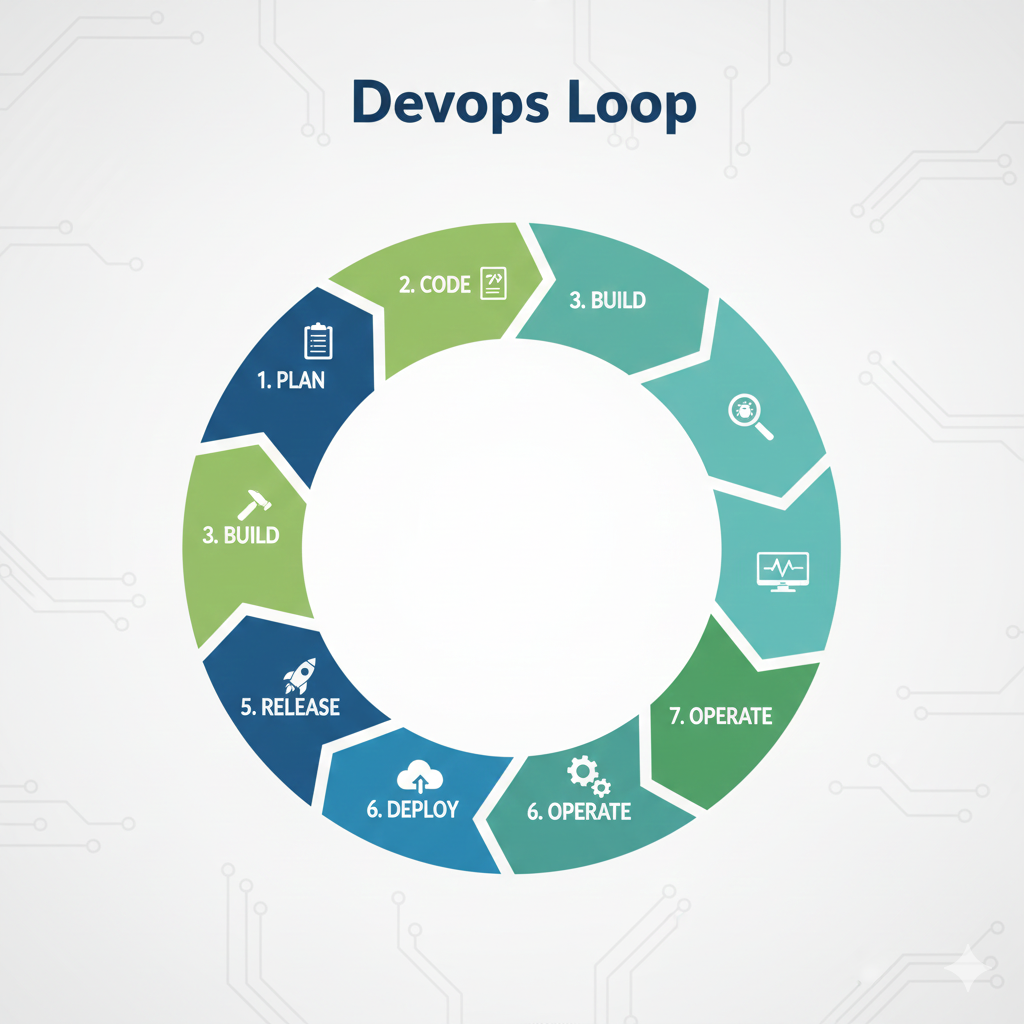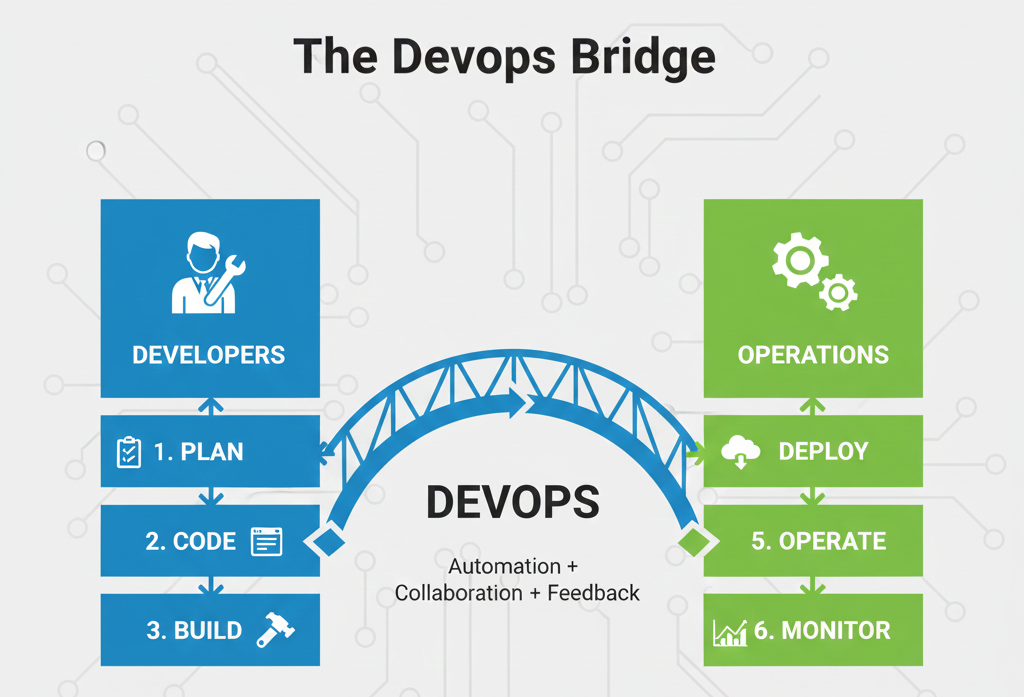Technology has always evolved at lightning speed, but in 2025, the pace feels faster than ever. Businesses demand rapid innovation engineers are expected to deliver code seamlessly and customers won’t wait for long release cycles. This is where DevOps steps in—not just as a buzzword, but as a culture, mindset, and methodology that bridges the gap between development and operations.
For engineers stepping into the world of DevOps, understanding its essence on Day 1 is critical. Let’s explore what DevOps really means, why it matters, and how you can build a future-proof career in it.
What is DevOps?
At its core, DevOps (Development + Operations) is a practice that eliminates the silos between software developers and IT operations teams. Instead of working separately, both groups collaborate throughout the entire software lifecycle—from planning, coding, building, and testing to deploying, monitoring, and improving.
This approach isn’t about tools alone; it’s about culture + automation + measurement + sharing. These four pillars (often called the CAMS model) empower organizations to deliver software faster, more reliably, and at scale.
Why DevOps Matters in 2025
In 2025, organizations aren’t asking if DevOps is needed—they’re asking how deep they can integrate it. Here’s why:
- Speed → Faster releases, sometimes multiple in a single day.
- Scalability → Cloud-native environments demand flexibility.
- Quality → Continuous testing and monitoring reduce downtime.
- Career Opportunities → DevOps engineers remain among the most in-demand professionals.
For students and professionals training at Curiosity Tech in Nagpur, DevOps isn’t taught as theory alone—it’s integrated into hands-on labs, real projects, and cloud-native environments (AWS, Azure, GCP, Multi-Cloud). That’s how future-ready engineers are shaped.
The DevOps Lifecycle (Simplified)
Here’s a visual representation of how DevOps works:

Each stage feeds back into the other, creating a continuous loop of improvement.
Hierarchical View of DevOps Practices
| Level | Practices / Tools Example (2025) |
| Culture | Collaboration, Agile, Shift-Left Testing |
| Automation | CI/CD (Jenkins, GitHub Actions, GitLab CI) |
| Infrastructure | IaC (Terraform, Ansible, Pulumi) |
| Cloud & Ops | AWS, Azure, GCP, Kubernetes, Docker |
| Monitoring | Prometheus, Grafana, ELK, New Relic |
| Security | DevSecOps, Snyk, OWASP, Aqua Security |
This layered approach helps beginners understand where DevOps sits in an organization and what tools dominate each layer in 2025.
Infographic: DevOps as a Bridge

This shows how DevOps connects the “makers” with the “keepers” to ensure smooth, continuous delivery.
Getting Started with DevOps in 2025
For a beginner, DevOps may feel overwhelming. The trick is to start small:
- Learn Version Control – Git/GitHub is the foundation.
- Understand CI/CD Pipelines – Automate testing and deployments.
- Experiment with Containers – Docker + Kubernetes for scaling apps.
- Explore Infrastructure as Code – Terraform or Ansible for automating environments.
- Focus on Cloud – Pick at least one provider (AWS, Azure, or GCP).
At Curiosity Tech, engineers are trained step by step The institute emphasizes industry use-cases like e-commerce deployments, real-time monitoring, and microservices scaling—so by the time learners finish, they are not just “DevOps-certified” but truly job-ready.
Humanizing DevOps: It’s About People First
Too often, beginners assume DevOps is just tools. But remember, DevOps starts with people. It’s about breaking barriers:
- Developers understand operations constraints.
- Operations teams get closer to code.
- Business leaders receive faster results.
When this harmony is achieved technology delivers its real promise
Conclusion
DevOps in 2025 is no longer an optional skill—it’s the heartbeat of modern software delivery. For beginners, the journey may feel like climbing a steep hill, but step by step, tool by tool, project by project—you’ll find yourself becoming a key enabler of innovation.
If you’re starting your career or upgrading your skills, learning DevOps with the right guidance—like the hands-on approach at CuriosityTech, Nagpur—can transform you from a beginner to a sought-after engineer in record time.



